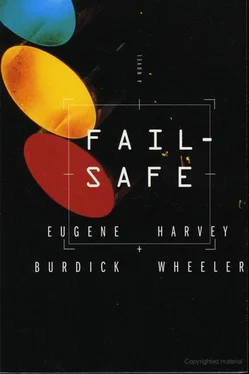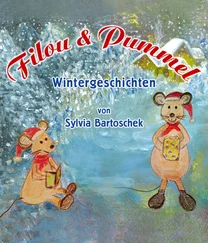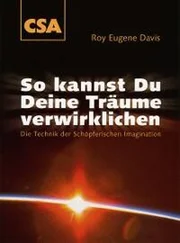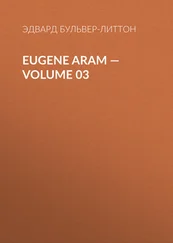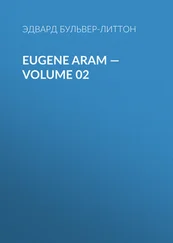“But no, Mr. Ambassador, it has little to do with natural endowment,” the Soviet delegate said. “I once served in Mexico and came to love the bullfights. Often the best torero would be a scrawny, chicken-breasted fellow. But once in the ring, there he would possess what you call grace.”
There was a long silence. The American Ambassador was well-bred, wealthy, married to a beautiful woman, was reputed to be a good father, and a tremendously hard worker. But it was not until this moment that Buck realized he lacked a single quality, “grace.”
“There is a grandeur about such a life,” the President said. “But there is also a desolation about it. Take Babe Ruth. I never saw him in action but I saw him after he had retired. He was like the husk of a man. Once the husk had been filled with a desire and a will and a pride of accomplishment. When I saw him there was a dullness to the eyes, a flacddness to the muscles.
I remember my father had a collection of pictures of people like Herbert Hoover, John Nance Garner, Bernard Baruch, Eisenhower, and Truman, which he kept in fine oak frames in his study. He regarded them as tragedies. Men cut off from power while they still had the grace and the desire to exercise it. They were somehow like puzzled old bulls.”
“Maybe our way is better,” the Soviet delegate said dryly. “In my country there are old cows and there are old steers, but there are no old bulls who still have potency. As long as the old bull has power he fights, he is useful. There is only one kind of retirement for the virile old bull: death. In a way it is better.”
The connection with Khrushchev was made in utter silence. Buck jumped when he heard the voice come up on the conference line.
“Comrade Lentov, you have become a philosopher,” Khrushchev said. Instantly all of Buck’s mind and intuition went into alert. There was a marked difference in the voice.
“Mr. Premier, this is a time for philosophy,” the Soviet delegate said.
They all waited. Khrushchev did not respond. Then he spoke on a different matter.
“I was told that you had invited your Ambassador to Moscow and my delegate to the UN to join us,” Khrushchev said. “I assume there is a reason.”
Buck found the word he wanted to describe Khrushchev’s tone-finality. He reached over and scrawled on the President’s pad: “Finality. Tone heavy, final. K. has decided.”
The President read the message without change of expression.
“There is a reason,” the President said. “First let us know how it is going with the Vindicators.”
“My experts tell me that two of them will probably get through and will bomb Moscow,” Khrushchev said heavily. “Your estimate was correct, Mr. President.”
“I take no pleasure in it, Premier Khrushchev,” the President said.
Buck thought suddenly of Khrushchev’s family, the daughter and the wife with her baggy clothes and plain face who had somehow endeared herself to Americans when the Khrushchevs had visited years before. Were they in Moscow?
“Let’s get on with it,” Khrushchev said roughly. “In a few minutes the bombs will be falling. I have brought my whole retaliatory apparatus to full readiness. If we cannot satisfy one another in the next few minutes I must release that apparatus. What do you propose, Mr. President?”
The President sat straight in his chair. With his left hand he held the phone to his ear. With his right hand he drew a straight black slash of a line down the precise center of the note pad in front of him.
“First I will tell you what will happen, Mr. Premier,” the President said firmly. Suddenly the flesh around his mouth turned white, but his voice did-not falter. “Then I will tell you what I intend to do to demonstrate our sincerity.”
“Proceed, Mr. President,” Mr. Khrushchev said. “But make it as brief as possible, if you please.”
“The two planes will drop four 20-megaton bombs on Moscow; There is a possibility that our Ambassador will hear the sound of jet engines a moment or two before the bombs drop,” the President said. “In any case, he will be aware of antiaircraft fire from your guns and, perhaps, the sound of your defensive missiles blasting off. A few seconds after be hears this noise, the bombs will explode. When they do, even if our Ambassador cannot say anything, his telephone will give off a distinctive shrill sound as it melts from the heat of the fireball. We know; we have tested.
When we hear that sound we will know that the American Ambassador to Moscow is dead.”
A grunt came over the line, as if someone had taken a hard blow in the stomach. Buck thought it came from Khrushchev but then he was not sure. For a moment there was silence on the conference line.
“Do you understand, Mr. Ambassador, that you are to stay precisely where you are?” the President asked.
“Yes, sir,” came the Ambassador’s voice.
“Mr. President!” Khrushchev’s voice fairly exploded over the telephone. Involuntarily Buck winced and looked at the President. There was neither sorrow nor sympathy in the voice now, only rage. “Is this your grand plan? To sacrifice one American—the good Ambassador—for five million Moscovites?” The voice literally choked with anger, then rumbled on. Buck wrote the word “rage” on the President’s pad and watched his hand shake as he did so. A simple scene swam into Buck’s mind and it was captioned “End of the World.” It was, he realized, the way he had always pictured it. There were rows of buttons on a board-blue, green, and red buttons-and a thick peasant hand with stubby fingers hovered over them, seemingly about to plunge. At that moment, with Khrushchev’s voice babbling now incomprehensibly in his ear, the hand started on its final murderous downward arc. A terror, pure and simple as anything Buck had ever felt, clawed at his guts.
The President’s voice, high-pitched and urgent and barely under control, snapped him out of it. Buck’s translation rode over Khrushchev’s voice and he found he was shouting, repeating phrases, banging the table with his fist. “No, no, Mr. Premier. That is not what I had in mind. You must listen to me, listen to me. At the moment that we hear the shriek of the melting telephone in Moscow, I will order a SAC squadron which is at this moment flying over New York City to drop four 20-megaton bombs on that city in precisely the pattern and altitude in which our planes have been ordered to bomb Moscow. They will use the Em. pire State Building for ground zero. When we hear the second shriek over the conference line we will know that your delegate to the United Nations is gone and along with him, New York.”
“Holy Mother of God,” Khrushchev said. His voice seemed almost like a pant.
Then there was a deep silence. Suddenly, like a mechanical mockery, there was a flare-up of static on the line. It sounded like some macabre laugh, something torn from the soul of the mechanical system.
“There is no other way, Mr. Premier, that I could think to demonstrate to you our sincerity,” the President said softly. “We will each have lost our largest city. But most of our people and our wealth and our property and our social fabric will remain. It is an awful calculation. I could think of no other.” He paused and his voice dropped low. “Unless, unless you think it unnecessary. Unless you feel the offer itself is enough. Showing our intentions-” He stopped in mid-sentence and Buck saw cross his face a look of physical pain, of some kind of extreme agony, and in his eyes the last flickering hope.
There was silence on the line for a full ten seconds. “I would like to say that this is unnecessary,” Khrushchev finally said. “I cannot. We have worked ourselves into a position of suspicion and hatred so great that the only way out is to proceed with what you suggest. My people would liquidate any leader who allowed the destruction of Moscow to go unavenged. My successor would be forced to take a greater vengeance. More than just New York would be destroyed. Then you would retaliate… No, this is tragic, but it must be so.”
Читать дальше
